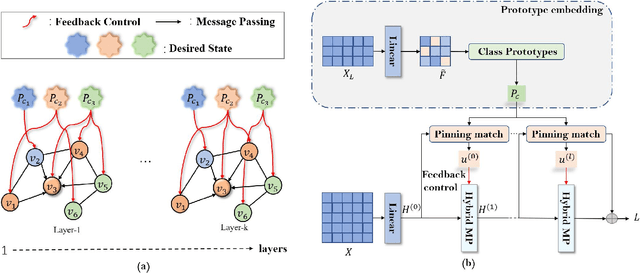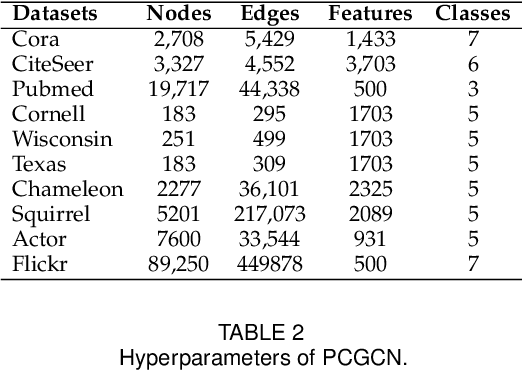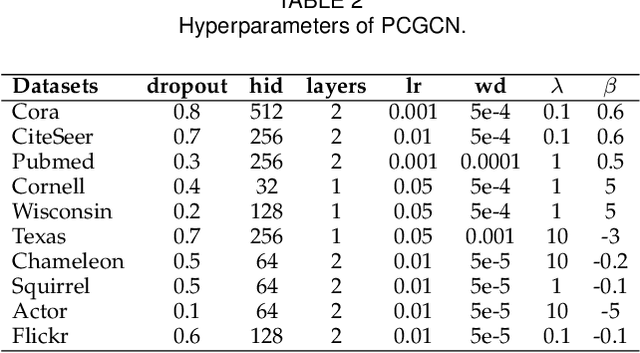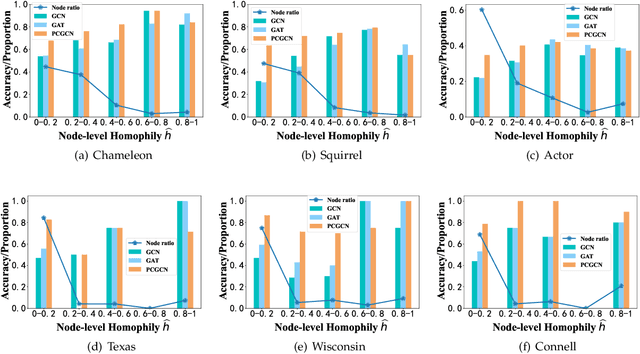Steering Graph Neural Networks with Pinning Control
Paper and Code
Mar 02, 2023



In the semi-supervised setting where labeled data are largely limited, it remains to be a big challenge for message passing based graph neural networks (GNNs) to learn feature representations for the nodes with the same class label that is distributed discontinuously over the graph. To resolve the discontinuous information transmission problem, we propose a control principle to supervise representation learning by leveraging the prototypes (i.e., class centers) of labeled data. Treating graph learning as a discrete dynamic process and the prototypes of labeled data as "desired" class representations, we borrow the pinning control idea from automatic control theory to design learning feedback controllers for the feature learning process, attempting to minimize the differences between message passing derived features and the class prototypes in every round so as to generate class-relevant features. Specifically, we equip every node with an optimal controller in each round through learning the matching relationships between nodes and the class prototypes, enabling nodes to rectify the aggregated information from incompatible neighbors in a graph with strong heterophily. Our experiments demonstrate that the proposed PCGCN model achieves better performances than deep GNNs and other competitive heterophily-oriented methods, especially when the graph has very few labels and strong heterophily.
 Add to Chrome
Add to Chrome Add to Firefox
Add to Firefox Add to Edge
Add to Edge